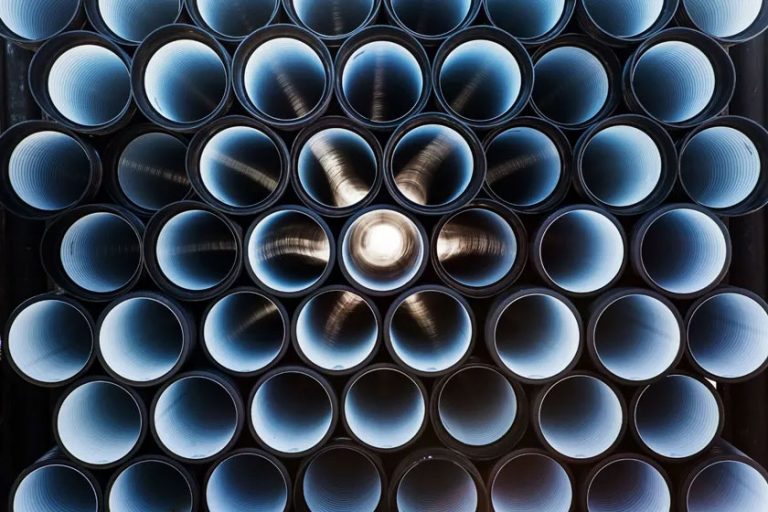Steve Taylor, technology development director at Teysha Technologies
Construction is the second largest contributor of single-use plastic waste in the UK. Figures from the Department of Environment, Food and Rural Affairs (DEFRA) indicate that construction generates over 19 per cent of the UK’s five million tonnes of plastic waste per year. Recovery and recycling rates for waste materials across construction have been increasing, yet it’s still thought that up to 20,000 tonnes of construction plastic is sent to landfill. It’s time for construction companies to explore organic biopolymers, and how they can provide the building blocks for safer and more sustainable construction.
The construction sector is reliant on plastic for many applications including cladding panels, guttering, piping, electrical wiring, wall linings and insulation. It is chosen for its light weight, robustness and resistance to weather, corrosion and rot.
However, using plastics in construction often leads to more waste. Plastic waste is produced in a multitude of ways, from removing materials during renovations and discarding packaging to unused materials from off-cuts or over-ordering.
The industry already contributes 38 per cent of global carbon dioxide emissions by burning fossil fuels to power machinery, so what can be done to reduce its environmental burden? To answer this, companies should explore the consequences of using construction plastics.
Using toxic building blocks
Plastic certainly has its advantages in construction. Polyvinyl chloride (PVC) and polyethylene (PE) are the most popular choices because they are versatile and combine good strength to weight ratios with durability and cost effectiveness. However, according to Greenpeace, PVC is the most environmentally damaging throughout its lifecycle.
PVC production is the largest use of chlorine and dioxin, two chemical building blocks responsible for a lot of toxic pollution. Chlorine is found in the chlorofluorocarbons (CFCs) destroying the Ozone layer, whereas dioxins pollute our waterways, poison our wildlife and contaminate our food chains. While there is little data on how much of the plastic in landfill is PVC, studies suggest that large amounts are incinerated in mixed waste facilities.
This has huge repercussions for human health. For example, Greenpeace reported that people living near illegal incineration sites in Malaysia had noticed an increase in respiratory issues and headaches. They are also concerned that toxic fumes could be causing menstruation issues or higher cancer rates.
If 40 per cent of plastics from construction is still sent to landfill or exported overseas, this is a significant contribution to pollution. This said, companies can rectify this and make construction more sustainable.
Exploring organic biopolymers
Organic biopolymers are showing promise as plastic alternatives across several industries including construction. This technology may eventually help steer the industry away from toxic PVC and PE.
A new composite material developed by Teysha Technologies has been made from natural derivations of starch and vegetable oils found in agricultural waste. This versatile polymer can be physically, mechanically and chemically tuned to meet the needs of the construction industry without using petrochemical monomers.
Organic biopolymers break down naturally to safe, non-toxic components in the environment. Furthermore, no toxic waste is generated in the production of organic biopolymers, unlike in the creation of PVC.
Plug-and-play systems, like the one developed by Teysha, are high-yielding and cost effective, meaning that large quantities can be produced at any one time. Because they can be manufacturing using waste sources, they support and promote a circular economy. Crucially, these biopolymers overcome many of the challenges of existing biopolymers. The fact that their hydrolytic breakdown can be tuned means they can be made to biodegrade in nature, and without the use of industrial catalysts.
The construction industry could make use of organic biopolymers, from insulation to window frames. If every construction material manufacturer were to make this transition, the toxic lifecycle of PVC and PE would soon become a thing of the past.
To find out more about Teysha Technologies, click here.
result of over a decade of research into natural polymer technology. Teysha’s natural product polycarbonate platform creates a wide range of polymers with tuneable properties and practical applications to meet the growing demand for sustainable plastics. The platform invention provides the design of synthetic strategies for the development of polymer materials that originate from renewable resources, exhibit novel combinations of strength and toughness, as well as undergo hydrolytic breakdown to biologically beneficial by-products.
Source: BFM Magazine



